On June 29, 2021, the Conference on ESG Sustainable Development and Theoretical Standard System was jointly hosted by the Institute for Sustainable Development Goals of Tsinghua University (TUSDG) and the World Financial Forum, and co-organized by CCXGF in Beijing. The conference aims to have an in-depth discussion on the challenges and opportunities brought by ESG concept and practice, to analyze the ESG contribution to achieving the "Dual Carbon" Goals and the realization path, and to strengthen the research in ESG related fields under the context of global economic and financial governance.
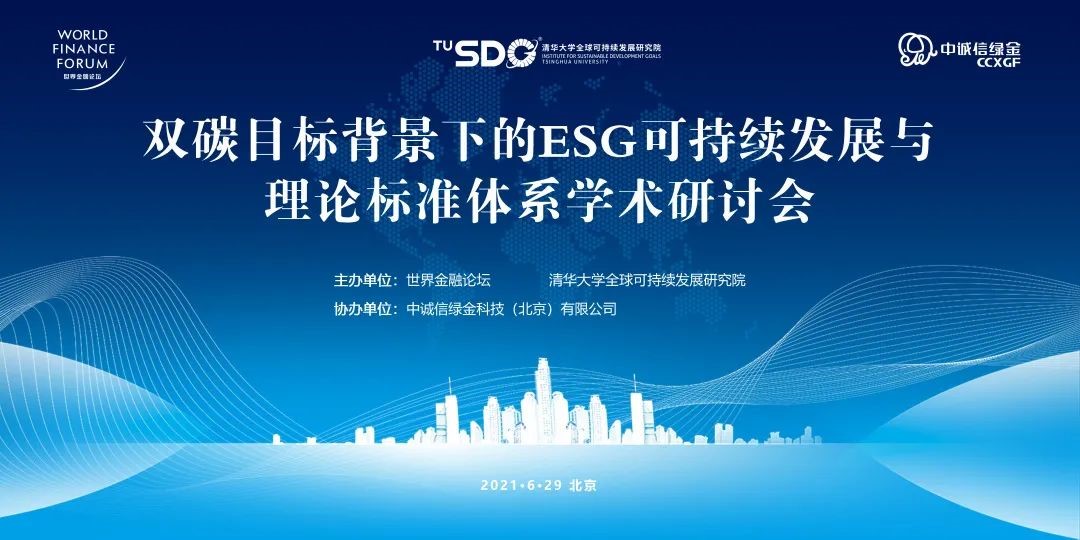
Prof. Wu Hongbo, Special Representative of the Chinese Government on European Affairs, former Under-Secretary-General of the United Nations and Co-Director TUSDG; Zhu Guangyao, former Vice Minister of the Ministry of Finance of P.R.C., Chief Advisors of the World Financial Forum and Center for BRICS and Global Governance (CBGG); Wang Zhongmin, former Vice Chairman of the National Council for Social Security Fund for P.R.C., Chairman of the Academic Committee of CBGG, Vice Chairman of the World Finance Forum; Liu Yanhua, Director of the National Committee Experts on Climate Change, former Vice Minister of the Ministry of Science and Technology of P.R.C., TUSDG Board member; Zhu Juan, Director-General of the International Department of the People's Bank of China; Ma Xianfeng, Deputy Director of China Institute of Finance and Capital Markets; Zhang Xuechun, Deputy Director of the Research Bureau of the People's Bank of China; He Ping, Director of the China Center for Financial Research of Tsinghua University; Zhang Xiaohong, Deputy Director of the Science, Technology Innovation and Social Responsibility Bureau of the SASAC of the State Council; Ye Min, Managing Director – Head of International of Moody's Corporation; Shen Shuangbo, President of China Cheng Xin Green Finance (CCXGF) Co., LTD.; Li Xinxing, Chief Representative of the European Bank for Reconstruction and Development to the Asian Infrastructure Investment Bank; Chen Zhiwei, ESG Senior Specialist of the Asian Infrastructure Investment Bank; Zong Liang, Senior Researchers of the World Finance Forum and the CBGG, Chief Researcher of the Bank of China; Mei Dewen, General Manager of China Beijing Green Exchange; Tian Fuxi, Vice President of SK China, Guo Siping Senior Associate of ESG Research of MSCI Inc.; Xu Yang, Public and Government Affairs General Manager (the Greater China) of the Dow Chemical Company attended the Conference. Feng Xingke, Secretary-General of the World Finance Forum and Director of CBGG, and Zhu Xufeng, Associate Dean and Professor of the School of Public Policy and Management of Tsinghua University and Executive Director of TUSDG, chaired the Conference respectively.
Nearly 100 distinguished guests from governmental, academic and business sectors attended the conference, including delegates from the People's Bank of China, Ministry of Finance, China Securities Regulatory Commission, the State-owned Assets Supervision and Administration Commission (SASAC) of the State Council, Development Research Center of the State Council, Moody's Group, CCXGF, European Bank for Reconstruction and Development (EBRD), Asian Infrastructure Investment Bank (AIIB), SK China, MSCI, Dow Chemical Company, Tencent, Tongfang Co., Ltd., Beijing Normal University, Tsinghua University, and etc.
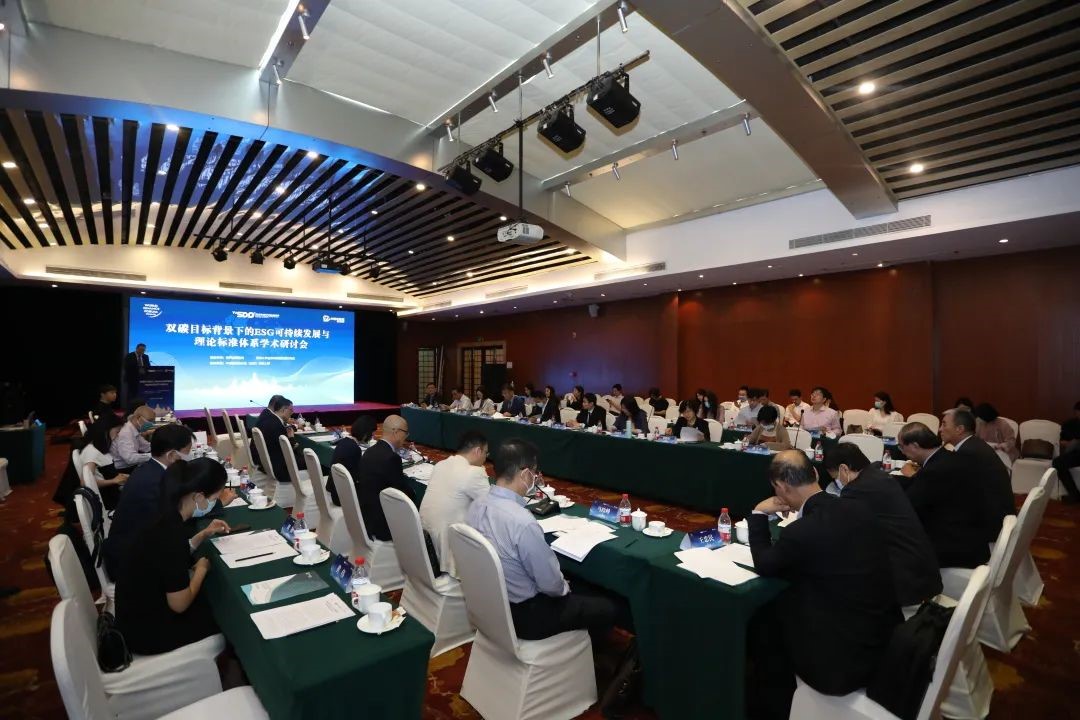
The Conference
l Remarks
In his speech, Wu Hongbo stated that China has proposed an ambitious goal of "Peak Carbon by 2030 and Carbon Neutrality by 2060", and make a clear deployment in the main goals of economic development in the "14th Five-Year Plan" and the vision of 2035, setting China's future green development strategy. It will also bring green innovation and change in various fields, such as industry, environmental protection, energy and finance. In this process, green finance is one of the key pillars for implementing China's energy revolution. ESG is an important concept and practical tool for building a green capital market. At a time when a unified ESG evaluation standard has yet to be formed at the domestic and international levels, it is essential to work with experts and scholars at both domestic and international levels to accelerate the standardization and normalization of this system. This will provide critical support for the realization of China's "Dual-Carbon" Goals and the SDGs.
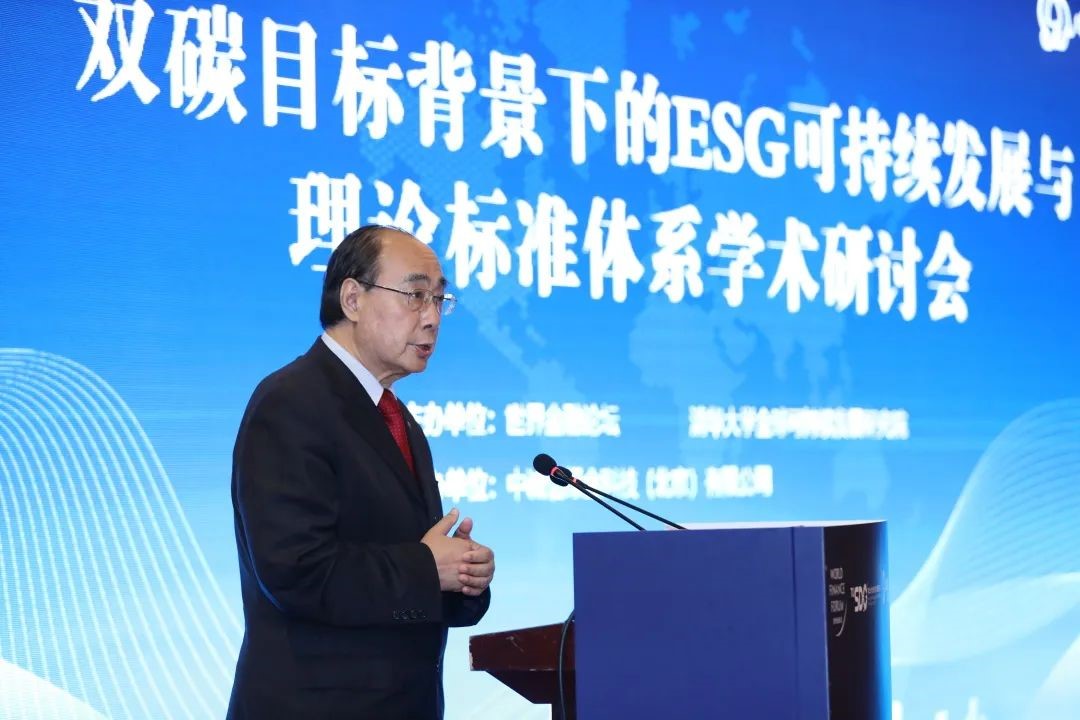
Remark by Wu Hongbo
Zhu Guangyao, as the China Trustee of the International Financial Reporting Standards (IFRS) Foundation, introduced the progress of global ESG rules and standards making. He believed there is a lot of resistance to the global development of industry-diversified and executable standards, but China has played an active role in promoting the international sustainability standards making. He said that during the negotiation and establishment of the ESG standard system in the future, China needs to participate in global governance actively, give full play to its leading role, effectively respond to the policy demands in line with China's national conditions, serve the overall situation of high-quality economic development and the goal of "Double Carbon”, and contribute to the tie integration of China with the world and to the firm, sustainable, balanced and inclusive development of our economy.

Remark by Zhu Guangyao
l Keynote Speech
In his keynote speech, Wang Zhongmin mentioned that in terms of the "Dual-Carbon" Goals – achieving carbon peak by 2030 and carbon neutrality by 2060, then before reaching the carbon peak, that is, from now to 2030, the total amount of carbon emissions in China may still grow, and the total trading volume will be controlled at the peak in 2030, and by the time of "carbon neutrality" in 2060. The total amount of carbon per year is going down, and this is the macro definition of the total amount target.
When we have a macro goal, we can deduce the standard and quantitative derivatives of each variable in the micro quantification, so that carbon emission reduction can become a measurable, identifiable, definable and tradable market. Under the premise of macro goal, it is also necessary to have the corresponding micro-subject role positioning and standard consensus mechanism, including micro incentives, micro vitality, microbalance and other micro elements of the micro mechanism. If any carbon emission reduction in this market can be regarded as a contribution to society and can be effectively and reasonably compensated, then the macro goal of "2030 and 2060" will become a micro subject, a micro mechanism, and "carbon neutrality" will become an incentive, which dynamically encourages every enterprise and every financial institution to introduce micro-incentive measures.
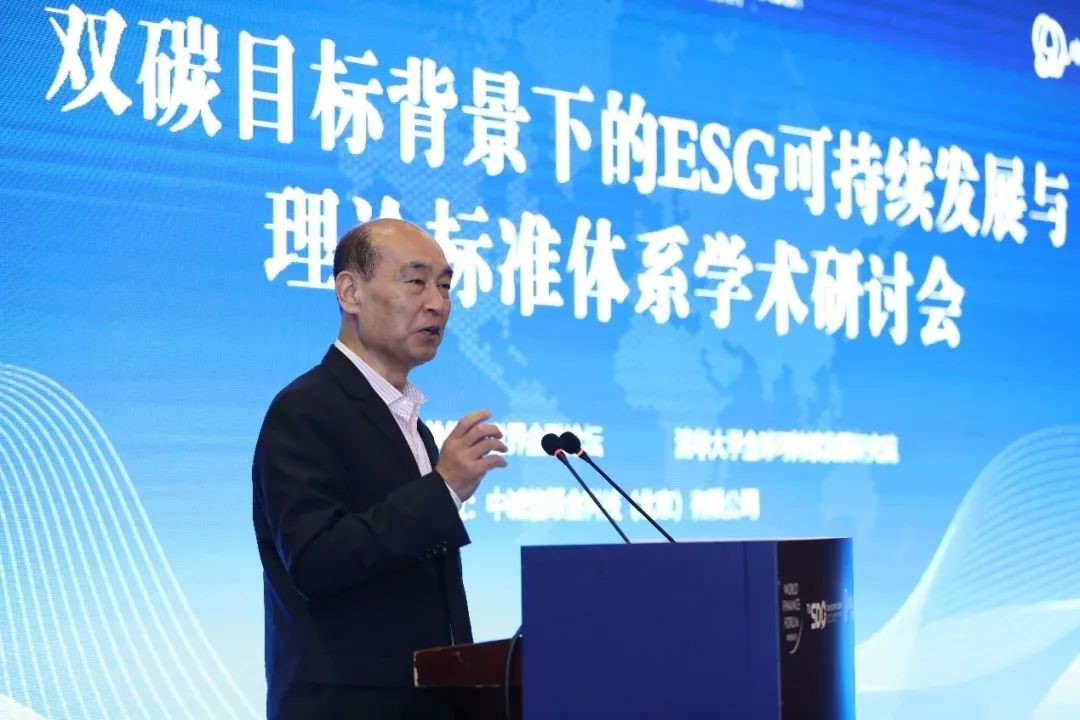
Remark by Wang Zhongmin
Liu Yanhua said that it has been five years since the Paris Agreement, and that there are three "gaps" in green finance in the context of the "Dual Carbon" Goals in general. The first gap is the commitment gap. The sum of national commitments will not be enough to meet the global temperature control target of 2 degrees. The second gap is the technology gap. The technology that has been mastered so far cannot support the goal of the Paris Agreement. The third gap is the financial gap. To achieve "carbon neutrality", governmental funds can only cover a small part, and the gap is mainly made up by the market. In the future, the green financial system will be very active, especially green financial services. Overall, the realization of low-carbon green finance in the context of "Dual-Carbon" Goals must not be rushed or slowed down. Technology application and market scale determine the cost, and market scale depends on the reform of institutional mechanism. The new round of competition under the "Dual Carbon" Goals will reorganize the global market pattern. Green finance will be a wind vane for China's future development prospects.
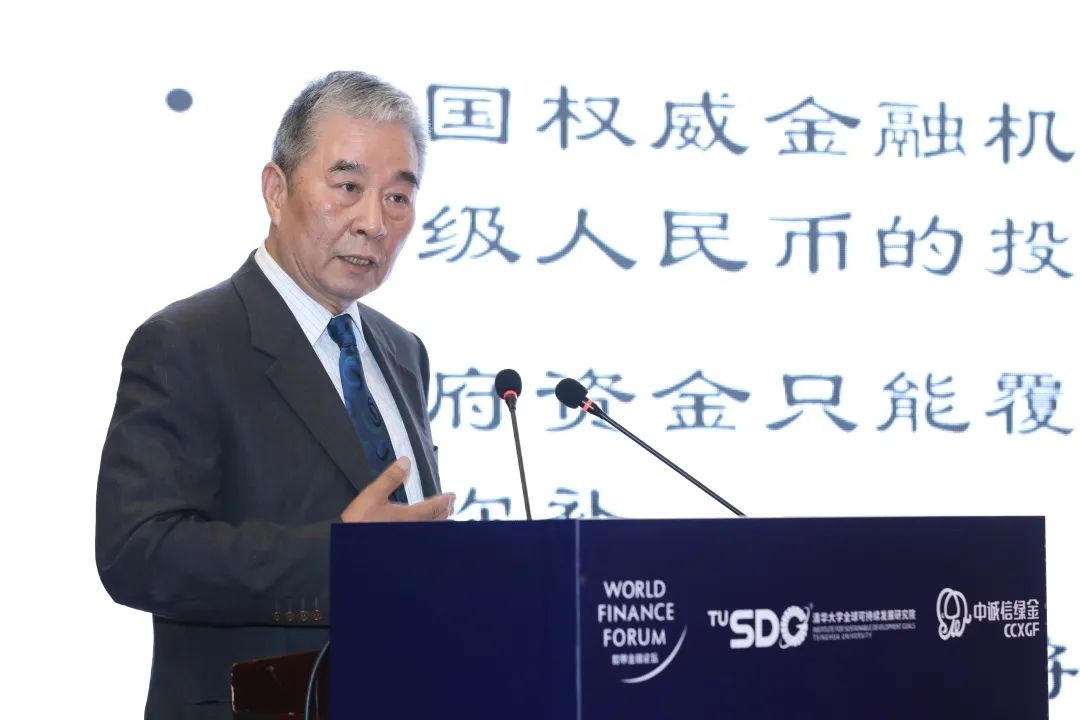
Keynote Speech by Liu Yanhua
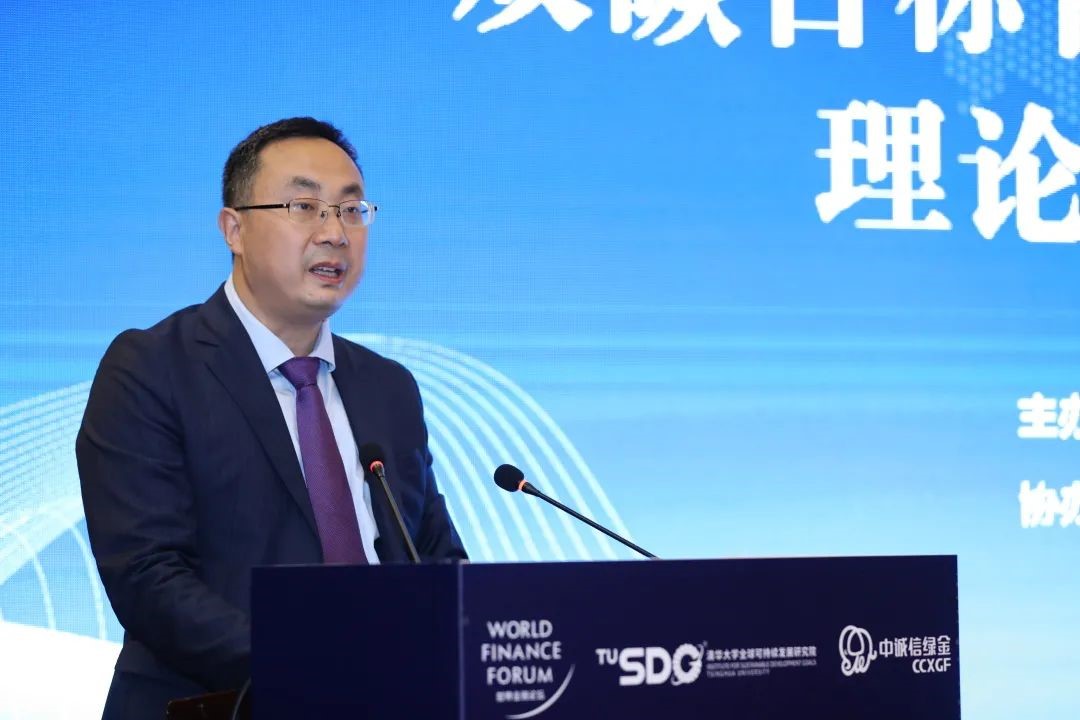
Feng Xingke Moderates the Remarks and Keynote Speech Sessions
l Special Subject
Subsequently, a panel discussion themed on the path and direction of establishing ESG evaluation standard system was hosted. This session was moderated by Prof. Zhu Xufeng, Professor and Associate Dean of School of Public Policy and Management, Tsinghua University, and Executive Director of TUSDG.
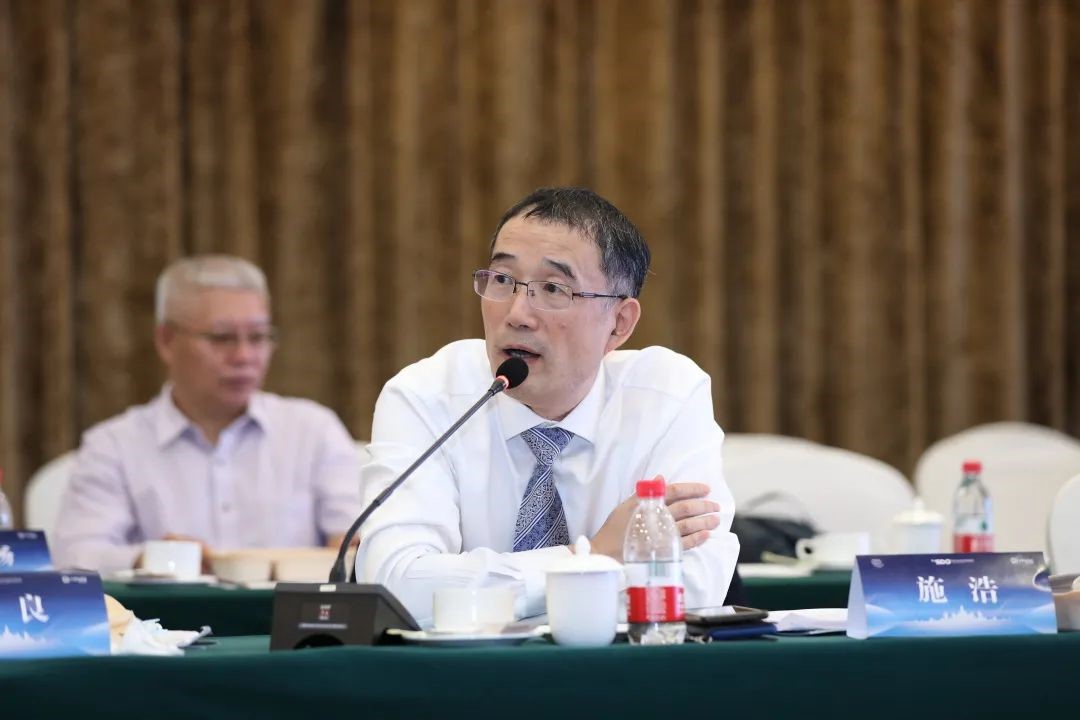
Shi Hao Presides Over the Seminar
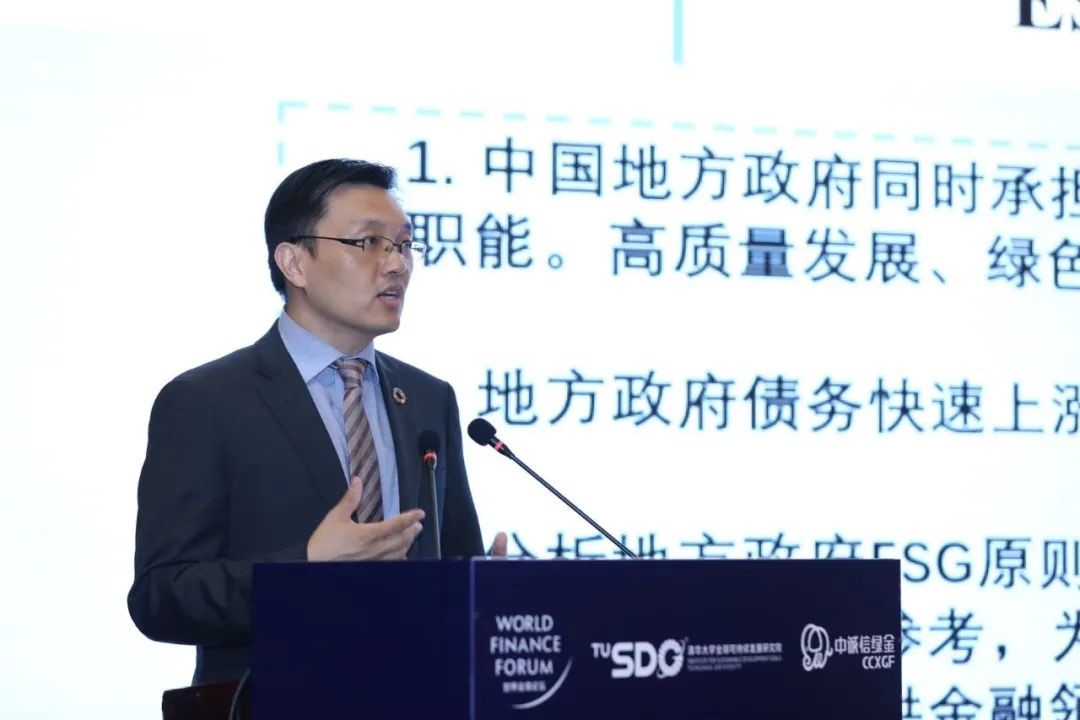
Report by Prof. Zhu Xufeng
After the conference, Seminar on the Progressive Research on ESG Rating System of Local Governments in China was held by TUSDG, Moody's Group and SynTao Green Finance. On behalf of the research team, Prof. Zhu Xufeng reported the research progress and the overall idea of the ESG rating system. The experts all mentioned that it is of great significance and far-reaching to put forward the ESG rating system targeting local governments in China. They also shared suggestions on ESG rating system building, selection of indicators, and evaluation methods.
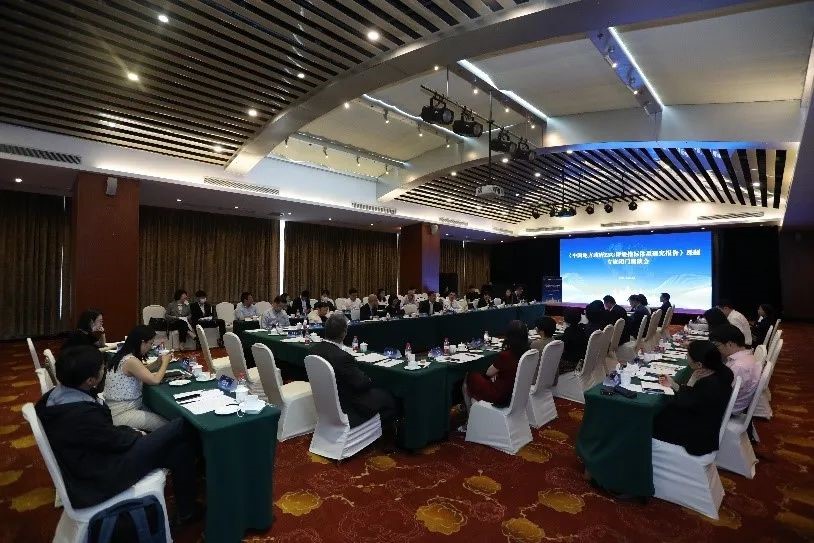
Seminar on the Progressive Research on ESG Rating System of Local Governments in China
The successful convening of the Conference on ESG Sustainable Development and Theoretical Standard System has contributed valuable insights for promoting a unified ESG evaluation standard system and helping China achieve the "Dual Carbon" Goals as soon as possible.

